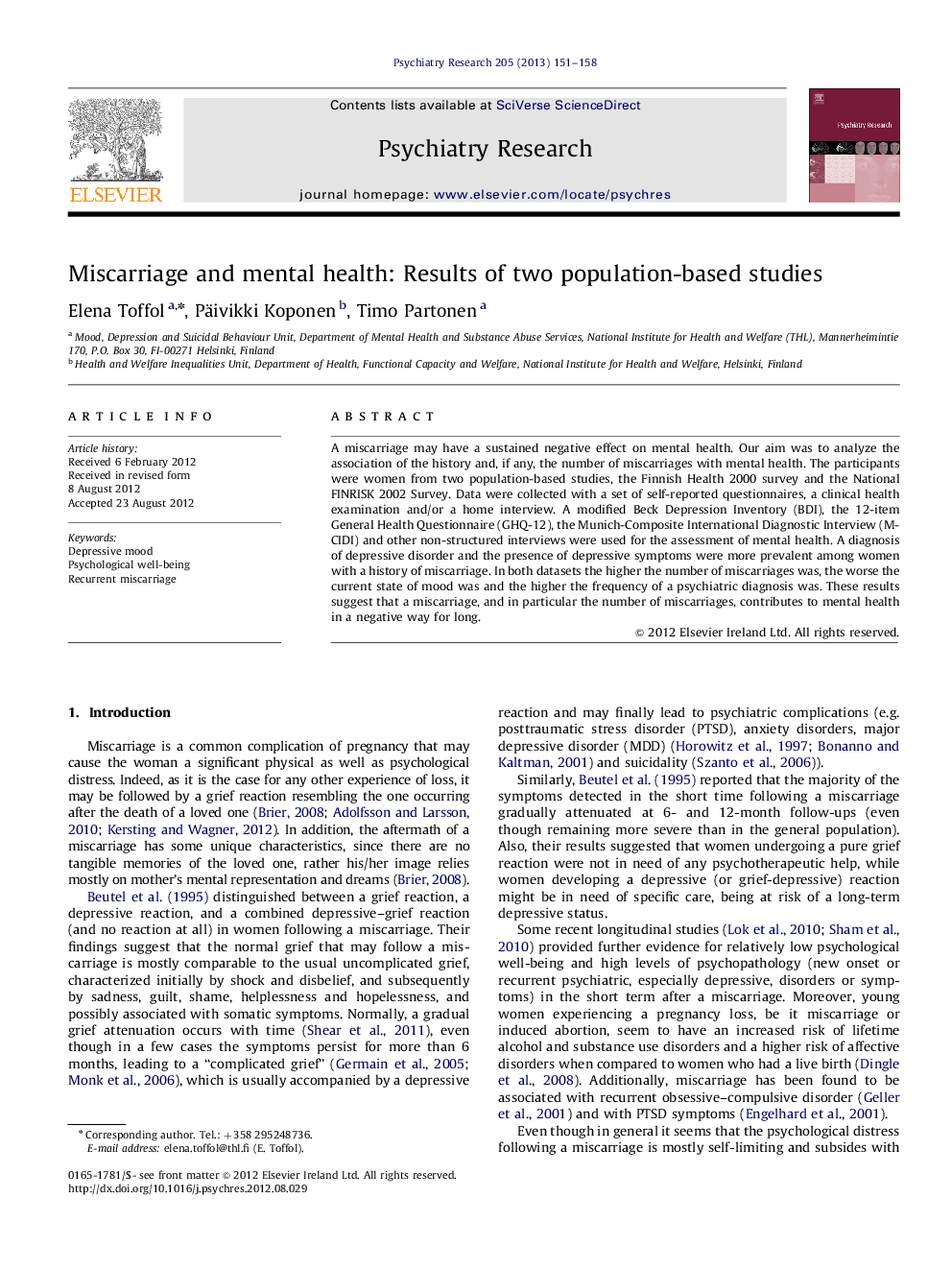| Article ID | Journal | Published Year | Pages | File Type |
|---|---|---|---|---|
| 6815819 | Psychiatry Research | 2013 | 8 Pages |
Abstract
A miscarriage may have a sustained negative effect on mental health. Our aim was to analyze the association of the history and, if any, the number of miscarriages with mental health. The participants were women from two population-based studies, the Finnish Health 2000 survey and the National FINRISK 2002 Survey. Data were collected with a set of self-reported questionnaires, a clinical health examination and/or a home interview. A modified Beck Depression Inventory (BDI), the 12-item General Health Questionnaire (GHQ-12), the Munich-Composite International Diagnostic Interview (M-CIDI) and other non-structured interviews were used for the assessment of mental health. A diagnosis of depressive disorder and the presence of depressive symptoms were more prevalent among women with a history of miscarriage. In both datasets the higher the number of miscarriages was, the worse the current state of mood was and the higher the frequency of a psychiatric diagnosis was. These results suggest that a miscarriage, and in particular the number of miscarriages, contributes to mental health in a negative way for long.
Related Topics
Life Sciences
Neuroscience
Biological Psychiatry
Authors
Elena Toffol, Päivikki Koponen, Timo Partonen,
